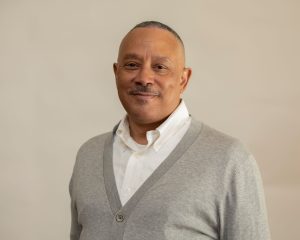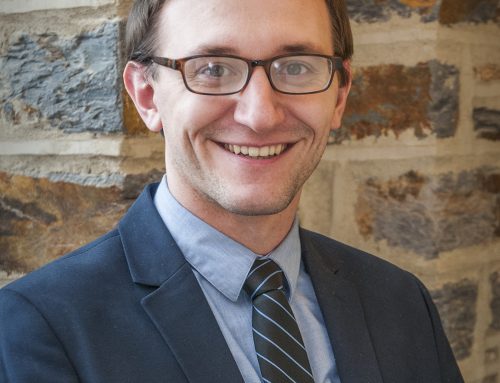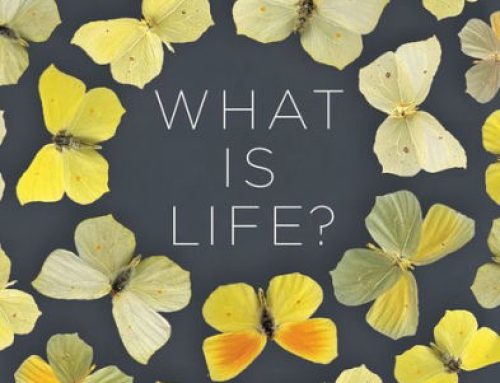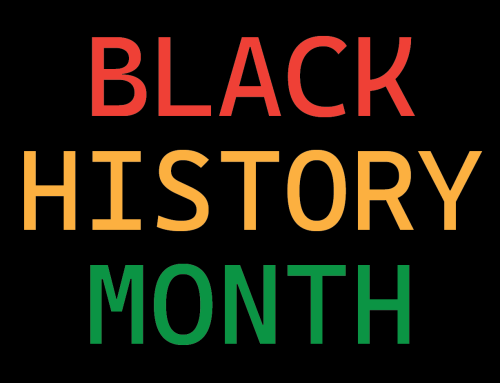In honor of Black History Month 2025, the Markus Library Staff have interviewed and profiled Senior Institutional Review Board Specialist Dale Miller, BA, CIP, a valued member of the Rockefeller Community who has served on the Institutional Review Board (IRB) since 1999.
Interview and article by Alisa Jackson and Claire Warner.

For the last 26 years, Dale Miller’s work at Rockefeller University has been deeply personal and a reflection of his dedication to the pursuit of equity and justice. Dale moved to New York City in the 1980’s. As a young man, witnessing the devastation of the emerging AIDS crisis motivated him to “have some input that would make life longer with improved healthcare and living situations- better for members of his communities”. He studied the Social Construction of Race, Gender, and Sexuality at NYU, where he learned the anthropological and sociological methodologies he would put to use, both in his work advocating for underrepresented/marginalized communities, and later in his work impacting healthcare delivery and research ethics. He worked as a founder of the Audre Lorde Project, which established a center where young people of color with non-conforming gender identity could find solace and community, and became enmeshed in the fabric of New York City’s activist community.
Prior to working at Rockefeller University, Dale worked at Harlem United Community AIDS Center conducting research to develop culturally-relevant prevention and education materials and participated in the NYC Prevention Planning Group for HIV, identifying and targeting underserved and at-risk communities with HIV health outreach and education. In these efforts, his focus was on people in the Harlem community who were at risk of acquiring, or already living with, HIV. Dale led the creation of the first prevention and education materials in New York City describing the HIV acute infection syndrome. He then went on to similar community advocacy work at Riker’s Island, where he continued to push for education and disease prevention in vulnerable communities.
In February of 1999, Dale began working full-time at Rockefeller University as Administrative Assistant to Dr. James Krueger. During his first year at Rockefeller, he became Administrative Assistant to the Hospital’s Clinical and Translational Science Award (CTSA) Science Review Committee, an experience that taught him approaches to the scientific processes for research conducted using human participants. Later that year, he became a part-time administrative assistant for the Institutional Review Board (IRB) under the direction of Dr. Emil Gotschlich, who became a mentor. Dale immersed himself in learning IRB regulations and ethics. In 2002, he attended his first Public Responsibility in Medicine and Research (PRIM&R) conference, and immediately saw the connection between the work he had been doing in Harlem and at Riker’s Island and his desire to increase the participation of historically marginalized/underserved communities as research study volunteers. Dale became a certified IRB professional in 2013.
Working with Rockefeller’s current IRB Chair, Dr. Sarah Schlesinger, Dale has continued to push for the enrollment of diverse study participants from marginalized groups. People with varying backgrounds from around the world have differences in their genetic heritage that influence their susceptibility to diseases and the efficacy of treatments. One example Dale highlights is the racial gap in the efficacy of treatments for heart disease in African American patients [1, 2]. These differences must be understood and accounted for to ensure equity when studying human health, and the IRB is a critical intervention point for ensuring this is done correctly. Dale has used his experience and connections in community-based organizations to advise community contacts about opportunities to participate in trials at Rockefeller. In particular, he encouraged and helped Dr. Martin Markowitz and Dr. David Ho of the Aaron Diamond AIDS Research Center, who were studying antiretroviral therapies and combination therapies in attempts to find treatments, cures, or vaccines for HIV, to recruit participants with diverse backgrounds from communities hit hardest by the AIDS crisis.
Dale’s role on the IRB places him at a unique position in the Rockefeller community and has enabled him to link researchers with the people and resources they need. For example, he played a critical role in the inception of a study on stress-related responses to racism by connecting Rockefeller community members Rachel Kimani and Ann Campbell to the expertise and support of Prof. Erich Jarvis, resulting in a continuing collaboration [3]. In the future, Dale hopes to interact with students and early career researchers, especially those from underrepresented/marginalized backgrounds and graduates of Historically Black Colleges and Universities (HBCUs) to show them how IRBs can enrich the conceptualization and conduct of research, and how the recruitment of research participants can be motivated by social and racial justice.
Dale’s continued advocacy work in New York City has interwoven with his career in research ethics at Rockefeller University, each informing the other and resulting in a multi-faceted contribution to the pursuit of health equity for marginalized groups.
References
- Taylor JSW, and Ellis GR. Racial Differences in Responses to Drug Treatment. American Journal of Cardiovascular Drugs. 2002;2(6):389-99. https://doi.org/10.2165/00129784-200202060-00004
- Carnethon MR, Pu J, Howard G, Albert MA, Anderson CAM, Bertoni AG, Mujahid MS, Palaniappan L, Taylor HA, Willis M, and Yancy CW. Cardiovascular Health in African Americans: A Scientific Statement From the American Heart Association. Circulation. 2017;136(21). https://doi.org/10.1161/cir.0000000000000534
- Kimani RW, Campbell AH, Tobin J, and Jarvis E. 214 Racism-based stress injury and biomarkers of stress: A Feasibility and Correlation study. Journal of Clinical and Translational Science. 2024;8(s1):65-. https://doi.org/10.1017/cts.2024.202





